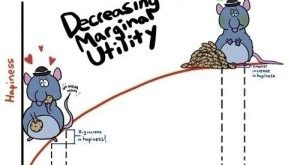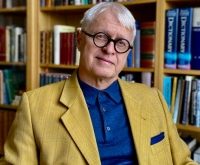Gatekeepers of the economics profession The power structures within the profession reinforce the mainstream in different ways, including through the tyranny of so-called top journals and academic and professional employment. Such pressures and incentives divert many of the brightest minds from a genuine study of the economy (to try to understand its workings and the implications for people) to what can only be called “trivial pursuits.” Too many top...
Read More »Incompetent economists
Teaching economics students the fundamentals of the utility theory used in mainstream economics is a bit of a challenge. But I guess we all expect the professors to know what they are teaching … At a meeting of the American Economic Association (AEA), 200 of the professional economists present were asked to answer the following question: “You won a free ticket to see an Eric Clapton concert (which has no resale value). Bob Dylan is performing on the same night and is your...
Read More »Finanspolitiken och de växande investeringsbehoven
.[embedded content] Ett av de grundläggande feltänken i dagens diskussion om statsskuld och budgetunderskott är att man inte skiljer på skuld och skuld. Även om det på makroplanet av nödvändighet är så att skulder och tillgångar balanserar varandra, så är det inte oväsentligt vem som har tillgångarna och vem som har skulderna. Länge har man varit motvillig att öka de offentliga skulderna eftersom ekonomiska kriser i mångt och mycket fortfarande uppfattas som förorsakade av för...
Read More »Utility theory — explaining everything and nothing
Utility theory — explaining everything and nothing Despite the rise of behavioral economics, many economists still believe that utility maximization is a good explanation of human behavior. Although evidence from experimental economics and elsewhere has rolled back the assumption that human agents are entirely self-interested, and shown that altruism and cooperation are important, a prominent response has been to modify individual preference functions so...
Read More »How economists reshape the world
How economists reshape the world [embedded content] To yours truly, the real value of Appelbaum’s meticulously researched history of how economists have come to increasingly influence public policies in modern societies, is that it shows how fundamentally ideological economics is. Of course, you never hear anyone at our seminars telling the lecturer that the assumptions on which his models are built are only made for ideological reasons. But that does not...
Read More »The problem with model-based explanations in economics
The problem with model-based explanations in economics One of the most important tasks of social sciences is to explain the events, processes, and structures that take place and act in society. Explanations are important within science since the choice between different theories hinges in large part on their explanatory powers. The most reasonable explanation for one theory’s having greater explanatory power than others is that the mechanisms, causal...
Read More »Keynes visar vägen ut ur krisen
Keynes visar vägen ut ur krisen Egentligen är det märkligt att den ekonomiska mainstreamteorins företrädare inget verkar vilja lära av historien och åter under senaste tiden stått tämligen handfallna inför den nuvarande ekonomiska krisens härjningar runtom i världen. Speciellt erfarenheterna av den stora depressionen under mellankrigstiden borde annars vara lärorika. Att den neoklassiska ekonomiska teorin stod handfallen när denna bröt ut i slutet på...
Read More »Schuldenbremse — ein deutscher Fetisch
Schuldenbremse — ein deutscher Fetisch [embedded content]
Read More »Top economics influencers to follow
Top economics influencers to follow Mainstream economics has sadly made economics increasingly irrelevant to the understanding of the real world. Trying to contribute to making economics a more realistic and relevant science, yours truly launched this blog in 2011. Now, thirteen years later and with millions of page views yours truly is — together with people like e.g. Paul Krugman, Joseph Stiglitz, Mariana Mazzucato, Thomas Piketty, and Steve Keen — ranked...
Read More »The problem with economics — too much maths, too little history
The problem with economics — too much maths, too little history .[embedded content] Mainstream economists have always wanted to use their hammer, and so have decided to pretend that the world looks like a nail. Pretending that uncertainty can be reduced to risk and that all activities, relations, processes, and events can be adequately converted to pure numbers, have only contributed to making economics irrelevant and powerless when confronting real-world...
Read More » Heterodox
Heterodox




